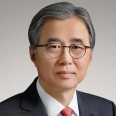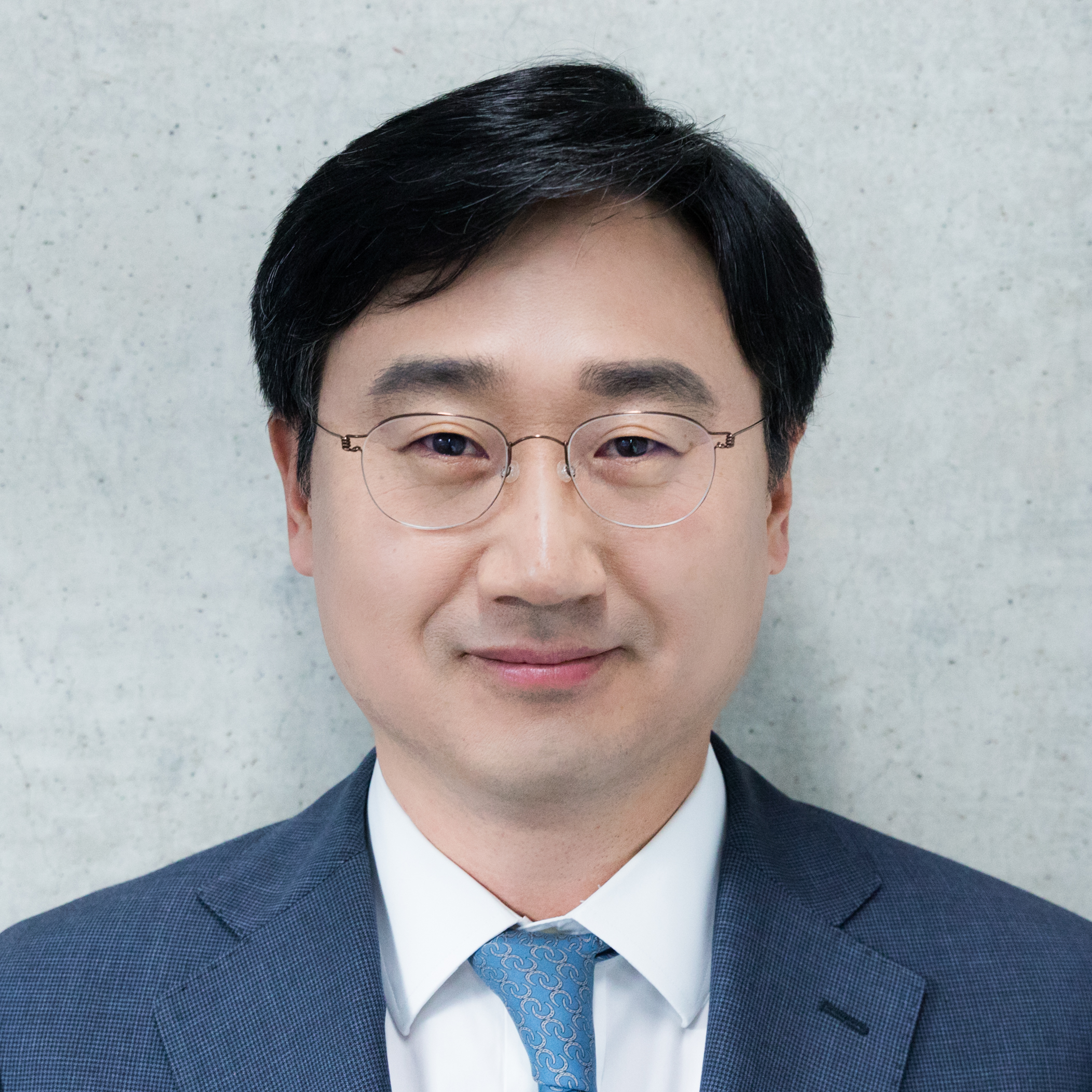Following Vice Chairman of the North Korean Workers’ Party Kim Yong Chol’s postponed visit to the United States, there is something strange afoot in US-North Korea relations. The United States maintains that it cannot lift sanctions before complete denuclearization of North Korea, whereas North Korea insists that sanctions must first be lifted before it takes next steps in the denuclearization process. Although President Donald Trump mentioned the possibility of a second summit with Chairman Kim Jong Un early next year, there are growing signs that this may not happen. In addition, disagreements between South Korea and the United States over how to deal with North Korea are creating further obstacles to denuclearization.
At this rate, there is a possibility that the denuclearization talks can give way to the Six-Party framework. If this is the case, inter-Korean relations will enter a period of stagnation without gaining new momentum and we will enter 2019 facing a situation in which there is no substantive change to the North Korean nuclear program.
The Gravity of the Current Situation
A Full-Scale US-North Korea Confrontation
President Trump insists that he has a good relationship with Chairman Kim Jong Un, but this sounds more like a diplomatic foil than anything else. American trust in North Korea has hit rock bottom. There is a widespread perception that North Korea is committed to improving external ties whilst holding onto its nuclear weapons. The United States continues to emphasize sanctions based on the belief that it is the only means by which to achieve final, fully verified denuclearization (FFVD) of North Korea. President Trump, Vice President Mike Pence, Secretary of State Mike Pompeo, and former US Ambassador to the United Nations Nikki Haley have all been stated that sanctions cannot be lifted until the actual denuclearization of North Korea is complete.
North Korea is also gradually dialing up the rhetoric against the United States. The warning signal appears to have been Chairman Kim’s reference to “hostile forces” during his recent visit to the Wonsan-Kalma resort construction site. Following this statement by their Supreme Leader, North Korean propaganda outlets, including the Korea Central News Agency (KCNA), the Chosun Sinbo, and the North’s Uriminzokkiri official website have been demanding that sanctions first be lifted before the next stage of denuclearization can proceed. Indeed, North Korea describes its nuclear development as “fair” and US sanctions as “unfair,” claiming that sanctions need to be lifted for there to be further progress on denuclearization.
Since the postponement of the planned November 8 US-North Korea high-level talks, no further talks have been scheduled. In its October 2 broadcast, North Korea’s KCNA offered a revealing snapshot of the current stalemate between the two sides. In its statement, it highlighted the vastly different US and North Korean perspectives over the reporting and verification of the Yongbyon nuclear facility:
“Now that the Democratic People’s Republic of Korea (DPRK) and the United States are aspiring after the establishment of new relations true to the spirit of the June 12 DPRK-US joint statement, it is quite right to put an end to the belligerent relations between them … Some Korean issue experts of America are recently spouting such rubbish that the US should force the DPRK to not only notify its nuclear program and have it verified but also dismantle its Yongbyon nuclear facility and missile facility in return for the US response to concede an end of war declaration.”
North Korea claims that an end-of-war declaration is not enough for it to fully report or subject its nuclear program to verification, dismantle its Yongbyon nuclear facility, and/or dismantle its missile testing facilities. This means that the political nature of the end-of-war declaration is viewed as insufficient for the North. Instead, Pyongyang appears to place higher priority on sanctions relief before it will agree to any reporting and/or verification. Meanwhile, the United States appears disappointed over Kim Yong Chol’s cancelled visit to the United States where there may have been some meaningful breakthroughs on these matters. This also suggests that North Korea might not be in a position to accept the level of reporting and verification required by the United States.
The most difficult stage in future denuclearization negotiations is expected to be the reporting and verification of North Korea’s nuclear facilities and the lifting of sanctions. For the United States, determining the scope and duration of verification is the most important purpose of the negotiation as it is directly linked to how thoroughly it can track North Korea’s nuclear development. North Korea, on the other hand, is refusing detailed reporting and verification fearing it might reveal all of its nuclear capabilities as well as hurt the regime’s national pride. In addition, North Korea is demanding concessions from the United States given that the success of Chairman Kim Jong Un’s economic plans depend on sanctions relief. Although both sides recognize the need for dialogue, it appears that high-level talks will not be easy given their sharp opposition over key issues.
South Korea’s Flip-flopping Position and Gap in ROK-DPRK-US Views
The South Korean government’s policy on North Korea has fluctuated amidst the US-North Korea confrontation. The government no longer mentions the denuclearization roadmap or a comprehensive agreement (or package settlement) followed by phased implementation. This is because the September 19 Pyongyang Summit accepted North Korea’s proposal for a “phased and synchronized” denuclearization. The South Korean government is also back peddling away from its original position stressing thorough verification. The last time that the government emphasized the need for verification was September 20, the day after the Pyongyang Summit. Similarly, the Moon administration maintained until September that sanctions relief should only occur following the actual denuclearization of North Korea. However, this has changed as of October. The government now emphasizes the need to lift sanctions. Meanwhile, the Pyongyang Joint Statement which pledges to improve relations and expand economic cooperation, “sandwiches” South Korea between US demands to comply with existing sanctions and North Korean demands to implement the cooperation agreements.
In contrast, the US position has remained consistent. The United States originally preferred a package settlement approach to denuclearization with North Korea. In what has been referred to as a “frontloading” approach, the United States has insisted that North Korea first demonstrate its intention to denuclearize by removing its nuclear weapons and fissile materials. Over time, however, it has recognized the difficulty of pursuing negotiations with North Korea on this basis and accepted North Korea’s position. Similar to the inter-Korean agreement, it has agreed to separate negotiations over the Punggye-ri, Tongchang-ri, and Yongbyon nuclear facilities. However, the United States has not compromised with regards to the reporting and verification of North Korean nuclear facilities and capabilities within this framework. In particular, the US stance is that thorough verification is a key issue in the nuclear negotiations and that sanctions cannot be lifted until North Korea accepts this. Recently, the Trump administration has emphasized that time is not an issue, meaning that it will not be rushed into reaching a settlement on negotiations.
But it is North Korea which has maintained the most consistent position so far. It has maintained its “phased and synchronized” approach and managed to get South Korea and the United States to also accept these terms. It has moved swiftly by dismantling the Punggye-ri nuclear test site and the Tongchang-ri missile engine testing facility. After unilaterally undertaking denuclearization measures of relatively low importance, it is now demanding that the United States take reciprocal measures by signing an end-of-war declaration and lifting sanctions. Despite not taking any action on important facilities such as the Yongbyon nuclear facility or its secret uranium enrichment sites, North Korea is now demanding corresponding measures from the United States. Especially since October, it appears to be focusing more on lifting sanctions and securing an end-of-war declaration. Indeed, there does not appear to be any sign that North Korea is retreating from its long-held position.
In sum, the South Korean government has changed its position to now accommodate most of North Korea’s demands. Meanwhile, the United States has remained consistent in demanding thorough verification rather than accepting North Korea’s preferred phased and synchronized approach to denuclearization. North Korea, on the other hand, shows no sign of compromising its position while staying firmly in the driver’s seat.
Potential Denuclearization Variables
South Korea-US Cooperation on North Korea Sanctions
South Korea and the United States are direct parties to the denuclearization talks with North Korea. In order to maintain greater negotiating leverage vis-à-vis North Korea, robust ROK-US cooperation must be maintained. However, as previously discussed, there are gaps among the two sides over issues such as sanctions. If such disagreements continue, North Korea will look to exploit them. If North Korea succeeds in further deepening these divisions, there is a possibility that ROK-US cooperation will fall apart long before the denuclearization of North Korea.
There is an unspoken disagreement between South Korea and the United States over sanctions. The South Korean government emphasizes building trust with North Korea and the need to ease sanctions. On the other hand, the United States believes that sanctions must be maintained for the time being to achieve North Korea’s denuclearization. This has created a difficult challenge for coordination on North Korea.
Following the agreement reached at the ROK-US working group on North Korea in late November, the joint study into the inter-Korean railway connection project is now being carried out in earnest. However, the actual linking of railways would violate United Nations Security Council Resolution 2375, which prohibits new investment and joint ventures in North Korea. Given that South Korea is an ally, it will be difficult for the United States to impose sanctions on South Korean companies. As a result, the United States should decide whether to accept unfavorable negotiations as proposed by North Korea or refuse and instead pressure South Korea to implement sanctions. Without careful management of ROK-US relations, anything can happen.
The Trump Factor
President Trump also looms large as a risk factor in how the United States may approach the North Korean nuclear issue. In particular, the president has a tendency to make decisions spontaneously whenever US-DPRK negotiations are not going his way. It is not entirely clear what motivates him to say or do what he does and when he does it. For instance, he canceled the planned Singapore Summit on May 24 without any prior notice. On August 24, he canceled Secretary Pompeo’s scheduled fourth visit to North Korea via Twitter. His rhetoric has a tendency to swing from one end to the other. In 2017, President Trump was not afraid to unleash “fire and fury” on North Korea. In 2018, he is not shy about “falling in love” with Kim Jong Un. The fact that President Trump’s behavior and decisions might change on any given day without warning clearly makes him an unpredictable variable in the ongoing negotiations.
Showdown between Trump and Democratic Party Controlled House
The turmoil and personnel conflicts within the White House have received widespread attention as chronicled in the September New York Times Op-Ed authored by “anonymous” as well as Bob Woodward’s Fear and Michael Wolff’s Fire and Fury. Regardless of President Trump’s thoughts, the so-called “Deep State” within the executive branch is likely to have different intentions and strategies on the policy front, and this reality remains yet another variable that can potentially influence US position on North Korea.
The Democratic Party taking control of the House of Representatives after the November 2018 midterm elections is likely to mean greater checks on the Trump administration. While the Republican Party retains control of the Senate, the Democratic Party controlled House can exercise its oversight powers over the executive branch by issuing supoena and conducting hearings. This can be a distraction for President Trump and it will be interesting to see how he responds to this pressure. Will the contentious relationship with Congress prevent President Trump from focusing on the North Korean issue or will he divert his attention what he considers to be meaningful victories on foreign policy like North Korea?
Policy Recommendations
Guard Against Overconfidence in North Korean Goodwill
North Korea’s evasion of reporting and verification can be seen as part of its intention to hold onto its nuclear weapons. This refusal to submit to reporting and verification does not make logical sense. This is because a responsible roadmap for denuclearization should link sanctions relief with full reporting and verification. Ahead of Vice Chairman Kim Yong Chol’s planned visit to the United States on November 6, the US State Department announced that the United States would be willing to have broad dialogues on all four points in the Singapore Summit Declaration, including improved bilateral relations, peace regime, and denuclearization. The fact that North Korea refused further talks and is instead emphasizing the sanctions relief shows that Pyongyang has no intention of giving up its nuclear weapons.
In the course of inter-Korean talks, a certain degree of trust in North Korea is necessary, but we need to recognize that—when it comes to nuclear weapons and the survival of the Kim regime—the North will not yield lightly. Even if negotiation takes time, the US and South Korea should maintain a firm position.
Maintain Policy Consistency
In order for the government’s policies to deliver results, it is necessary to minimize the effect of external variables through careful planning. Maintaining a consistent policy means buying more time for the preferred policy to have its intended result. While circumstances might change and require a different policy, these kinds of adjustments need to be transparent and sufficiently explained.
However, the current South Korean government’s policy toward North Korea is not in line with the principles of policy planning and implementation. All talks with North Korea should begin with a clear roadmap for denuclearization. This is not the case at the moment. While the government has in the past emphasized verifiable denuclearization, it is silent when it comes to urging North Korea to agree to proper verification. At the same time, the government is taking the lead in trying to convince the United States of the need to ease sanctions, in spite of the US belief that sanctions are the only effective means of bringing North Korea to the negotiating table. The build-up of these kinds of issues erodes US trust in South Korea.
The current government needs to go back and readjust its policy on denuclearization. The decision makers must outline an appropriate roadmap which details a phased approach for denuclearization with verification that is acceptable to North Korea. Given the current situation, we need to link thorough reporting and verification with the gradual easing of sanctions.
Strengthen Cooperation with Neighboring Countries on the Basis of US-ROK Cooperation
To take the lead on the North Korean problem, South Korea should secure cooperation and support from neighboring countries. Such cooperation has brought North Korea to the bargaining table as demonstrated by the Six Party-Talks. Cooperation was also critical in the lead-up to the September 19 Declaration as well as imposing tougher United Nations sanctions in 2017. If we can bridge the difference between South Korea and the United States and nudge China and Russia to cooperate, it is possible to pressure North Korea to change its position. Recognizing that South Korea is limited in its ability to undertake such efforts alone, it is important to work with the United States to also persuade China and Russia.
South Korea must also convey its commitment to denuclearization as well as its negotiation strategy to the United States in order to resolve any concerns or misunderstandings. This is the first step to restoring trust between the two sides. It is important to negotiate more efficiently by creating a denuclearization roadmap on the basis of strong South Korea-US cooperation. At the same time, this roadmap can achieve the goal of securing support from China and Russia and save time in dealing with North Korea. Whether through dialogue or pressure, South Korea and the United States should create and implement a principle that either side’s policies do not come at the expense of the other.
The Working Group Should Conduct Comprehensive Consultations
South Korea and the United States should work towards the successful management of the proposed working group on denuclearization. In particular, the working group’s mandate should not be limited to denuclearization. Currently, South Korea and the United States hold different views about issues such as diplomatic recognition of North Korea, its nuclear intentions, rewards and timeframes for denuclearization, and the future peace regime.
The working group should operate as a conduit for cooperation on all Korean Peninsula related issues. The first working group meeting was satisfactory for both South Korea and the United States, but there are serious challenges regarding the future of the Korean Peninsula. In order to be successful, the working group should be able to reach compromises and narrow the gap between the two countries with the recognition of successful policy coordination and denuclearization of North Korea.

 Facebook
Facebook Twitter
Twitter

